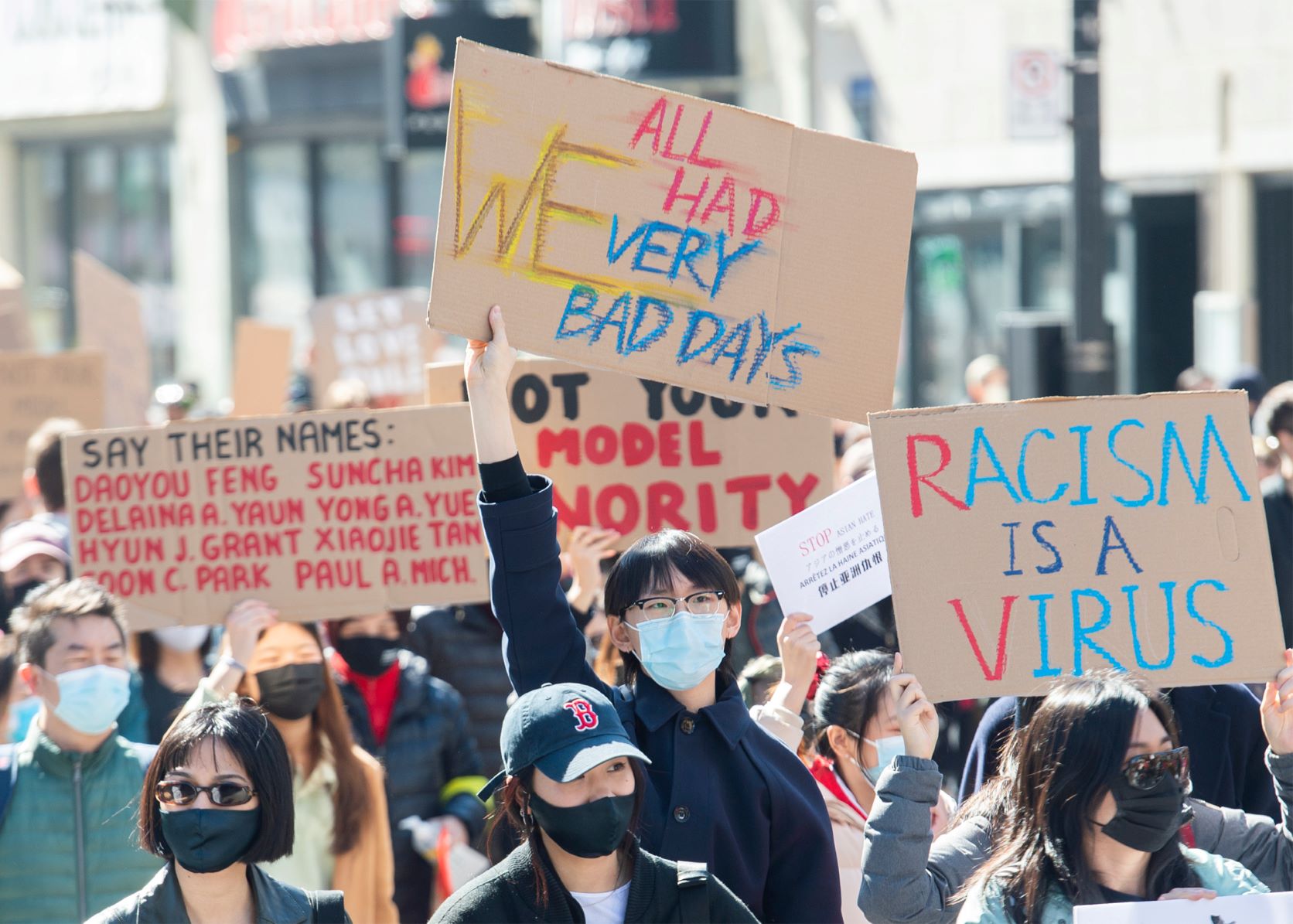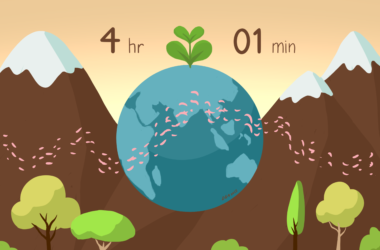On March 27, my girlfriend and I were on our way to pick up sushi when a random man approached our parked car and raised his middle finger at us. As we crossed the street toward the restaurant, I heard, “F**k China! F**k Japan!” I turned around to see that same middle finger pointed at me, my ethnicity, my race, and my heritage. Blatant racism is nothing new to me—I first experienced racism at the age of six, before I could even speak English, days after my arrival to the U.S. from Wuhan, China. At that moment, I did not know that only an hour later, the same man would be filmed harassing and threatening Rebecca Ng, an Asian woman riding the Metro.
The TikTok video of the assault is hard to watch—not only because of the man’s hand gesture of a gun pretending to shoot her in the face or the Nazi salutes, but also because no bystander stood up for her. No one helped her. After viewing the video on Facebook, I recognized that it was the same man who harassed me. I knew I had to do something; I knew that this time, I could not just forget about it, as I have done so many times in the past.
Ng and I have now both filed police reports with the hate crimes unit of the SPVM, not just to hold the man responsible for his racist actions, but to encourage others from the Asian community to stop tolerating anti-Asian racism. It is time to call it what it is, and ignoring racism only allows it to fester. The video also made it painfully evident that Montrealers can witness such horrific attacks and choose to remain silent.
The surge in blatant anti-Asian racism during the pandemic is simply a continuation of historic racial injustices and a manifestation of systemic anti-Asian discrimination. Western science has tried to categorize humans, with the white man always portrayed as superior to other people. These ideas, when combined with Darwin’s natural selection and implemented in governmental policies, directly harm minorities through Social Darwinism, eugenics, and Nazi race theory. Academia, then, helped develop and maintain social hierarchies through its imaginary objectivity and scientific authority, which has historically served as one of the founding principles of white supremacy. The history of McGill University is seeping with eugenics. Even to this day, some scientists, including Armand Leroi––who was invited as a seminar speaker in the Department of Biology on April 1––are strong advocates for the revival of race science.
“What gives a Han Chinese child the curve of her eye? The curve I read once described by an eminent Sinologist as the purest of all curves. What is the source of that curve?” Armand once wrote in a blog post.
The curve of my Han Chinese eyes come from the way I cringe when I think about how statements like “science is apolitical”—which Leroi claimed during the seminar—are used to defend the racist, imperialist, and misogynistic roots of science. Scientists are not absolved of responsibility simply because they are unaware of the ethical implications of scientific pursuits like modern neo-eugenics. Science is inherently political and continues to be used as a weapon by those privileged enough to wield it.
McGill has a large proportion of Asian students, staff, and faculty. Our ancestors were head taxed, discriminated against, segregated into urban slums, and killed. Yet, we persist. McGill’s reluctance to adequately condemn ongoing anti-Asian racism and systemic injustices is glaring. I hope that my personal experience can catalyze McGill to confront the distress of its Asian communities and create a concrete anti-Asian racism action plan to be implemented as soon as possible. The Asian community is beginning to find its voice, and it is about time we started using it.









